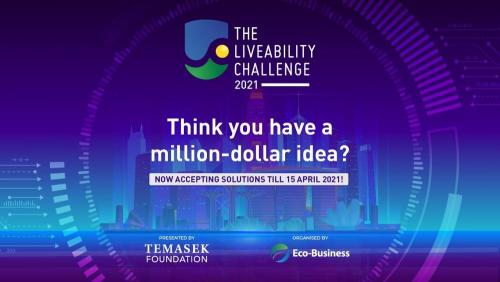
The Liveability Challenge 2021
By 2050, global carbon emissions must reach net zero emissions to keep temperatures within a 1.5 degree Celsius rise from pre-industrial levels. Scientists regard this as critical to prevent the worst effects of climate change.
With more than 50 billion tonnes of carbon emissions released into the atmosphere annually, we need revolutionary ideas that will enable humanity to drastically reduce the production of greenhouse gas emissions and its removal at scale.
At the same time, our disposable culture has exacerbated resource scarcity, and created a pollution crisis that threatens the natural ecosystems which we need to thrive. We need a circular economy to replace the existing linear model that is hugely wasteful and pollutive. How can we find solutions which are restorative and regenerative in design?
From 15 January to 22 April 2021, The Liveability Challenge is accepting proposals with the most disruptive, game-changing ideas that will help cities accelerate decarbonisation and address its resource challenges. Finalists will compete for the grand prize of up to S$1 million in grant funding for project development by Temasek Foundation, a minimum of $50,000 investment by Planet Rise, a $50,000 investment by Amasia and
$50,000 investment by Silverstrand Capital.
Started in 2018, The Liveability Challenge is a global call for viable, groundbreaking solutions to some of the greatest problems facing cities in the tropics in the 21st century. Finalists stand the chance to secure up to S$1 million to support their game-changing work. Hot on the heels of three successful editions of The Liveability Challenge, Temasek Foundation and Eco-Business will once again deliver a highly-anticipated initiative in 2021 to accelerate urban transformation and deliver measurable impact.










Add new comment